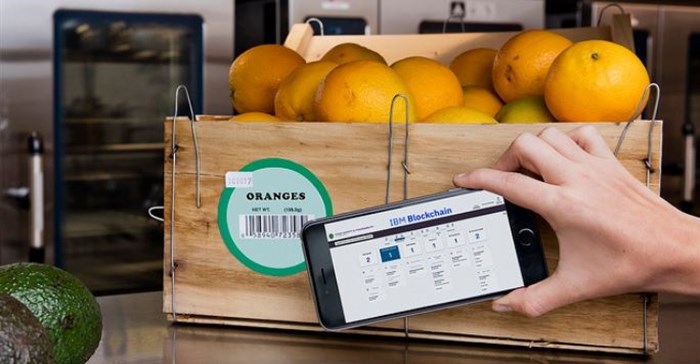
Subscribe & Follow
Advertise your job vacancies
Blockchain Food Safety Alliance formed to enhance supply chain transparency
CHINA - In an effort to achieve greater transparency across the food supply chain Walmart, JD.com, IBM and Tsinghua University National Engineering Laboratory for E-Commerce Technologies have formed a Blockchain Food Safety Alliance, which will kick off with a collaboration designed to enhance food tracking, traceability and safety in China.

The four companies will work together to create a standards-based method of collecting data about the origin, safety and authenticity of food, using blockchain technology to provide real-time traceability throughout the supply chain. This will encourage accountability and give suppliers, regulators and consumers greater insight and transparency into how food is handled, from the farm to consumers. This has traditionally been challenging due to complex and fragmented data sharing systems that are often paper-based and can be error-prone.
Broad-based food safety ecosystem
Walmart, JD, IBM and Tsinghua University will work with food supply chain providers and regulators to develop the standards, solutions and partnerships to enable a broad-based food safety ecosystem in China. IBM will provide its IBM Blockchain Platform and expertise, while Tsinghua University will act as a technical advisor sharing its expertise in the key technologies and the China food safety ecosystem. IBM and Tsinghua will collaborate with Walmart and JD to develop, optimize and roll out the technology to suppliers and retailers that join the alliance.
In terms of food safety, Walmart works closely with suppliers, regulators, industry partners and the research community around the world. In China, it invests heavily in food safety research through the Walmart Food Safety and Collaboration Center and has promoted food safety, both through its own supplier network, as well as working with JD, which has rich omni-channel food supply chain management experience. The two have been able to leverage JD’s expertise in the application of artificial intelligence (AI), blockchain, big data and other new technologies to protect consumers.
Following IBM and Walmart's announcement in August of a new consortium to enhance food safety, this collaboration brings IBM’s blockchain food safety expertise to China. IBM, Walmart and Tsinghua University have piloted the use of blockchain to trace food items, including pork in China and mangoes in the U.S., as they move through the supply chain to store shelves. Recent testing by Walmart showed that applying blockchain reduced the time it took to trace a package of mangoes from the farm to the store from days or weeks to two seconds.
Ensuring a safe global food system
“As a global advocate for enhanced food safety, Walmart looks forward to deepening our work with IBM, Tsinghua University, JD and others throughout the food supply chain. Through collaboration, standardization, and adoption of new and innovative technologies, we can effectively improve traceability and transparency and help ensure the global food system remains safe for all,” said Frank Yiannas, vice president, food safety and health at Walmart.
“Blockchain holds incredible promise in delivering the transparency that is needed to help promote food safety across the whole supply chain. This is a fundamental reason why IBM believes so strongly in the impact this technology will have on business models,” said Bridget van Kralingen, senior vice president, IBM Industry Platforms. “By expanding our food safety work with Walmart and Tsinghua University in China and adding new collaborators like JD.com, the technology brings traceability and transparency to a broader network of food supply chain participants.”
The collaboration is designed to help ensure brand owners’ data privacy while helping them integrate their online and offline traceability for food safety and quality management channels. Companies that join the alliance will be able to share information using blockchain technology, and plans include them being able to choose the standards-based traceability solution that best suits their needs and legacy systems. This will, in turn, bring greater transparency to the supply chain and introduce new technologies to the retail sector designed to create a safer food environment and enhance the consumer experience.
The insights gained from the work in China will shed light on how blockchain technology can help improve processes such as recalls and verifications and enhance consumer confidence due to greater transparency in China and around the world.
Related
Ipelegeng (Ipi) Thibedi joins Ogilvy South Africa’s as group managing director 11 Mar 2025 Protecting the keys to the kingdom with privileged access management as a service 21 Oct 2024 Growth Ten is poised to launch an innovative and disruptive continuous learning platform for professionals 16 Jul 2024 Growth Ten is poised to launch an innovative and disruptive continuous learning platform for professionals 16 Jul 2024 IBM software reaches 92 countries via AWS partnership 8 May 2024 Leap Day: The problem that changed the history of time 29 Feb 2024

